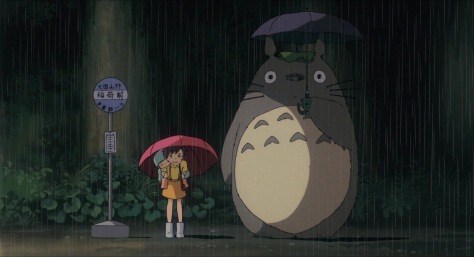By Dennis Hartley
(Originally posted on Digby’s Hullabaloo on July 14, 2012)

Life is sustained by the grinding opposition of moral entities.
-Anthony Burgess
It quickly becomes apparent in the opening scenes of Russian director Andrei Zvyagintsev’s Elena that you are settling in to watch a film wherein nothing is going to quickly become apparent.
He holds a static shot of a tree bathed in the cool light of dawn for what must be at least three minutes. Aside from the cackling of crows, there doesn’t seem to be anything of particular significance going on.
Wait a minute…is that a window, beyond the branches? It is, in fact, a balcony window, but we can’t quite see in; the glass only reflects the burgeoning sunrise. And (crows aside) it’s quiet…too quiet. This gives the viewer ample time to ponder: What’s going on behind that window? Are those crows an omen?
Interior shots reveal a decidedly less sinister scenario; a well-appointed luxury apartment, where a plain, unassuming middle-aged woman shuts off her alarm and gets out of bed. Again, the director takes his time, documenting the minutiae of her morning ablutions. Just when we are about to assume she lives alone, she enters a different bedroom, drawing the curtains open to awaken a gentleman who is a number of years her senior. There is minimal verbal exchange.
As she diligently begins to prepare breakfast, new questions arise. Is she his live-in housekeeper? Or maybe a caregiver for an elderly relative? While arguably a bit of both, turns out she’s technically neither. Despite their undemonstrative behavior, they are married. Vladmir (Andrey Smirnov) is an aloof, well-do-do patrician, and Elena (Nadezhda Markina), a retired nurse, hails from a working class background.
Mundane breakfast chat reveals that Vladmir and Elena each have an adult child from previous marriages. Vladmir has a daughter, with who he is rarely in contact with. According to him, she is a self-centered “hedonist”, who “takes after her mother”. Still, he spoils her; sending her money to support her party girl lifestyle.
Much to Vladmir’s chagrin, Elena is off after breakfast to visit her son Sergei (Aleksey Rosen). Sergei, who is unemployed, relies on the money Elena funnels him from her monthly pension check to support himself, his wife, infant and teenage son.
Vladmir, despite his wealth, refuses to give Elena’s son financial support; to him, Sergei is a useless lay about who needs to “get his ass off the couch” and provide for his family. Elena, who has heard this tirade before, absorbs it all with quiet resignation.
Then, she’s off on a long slog via bus, train and shoe leather express to just beyond the outskirts of urban renewal, where Sergei and his family live in a drab, rundown beehive apartment complex (which, with its twitchy youth gang skulking about the stoop and trashed, graffiti-scrawled lobby, is reminiscent of the building where Alex and his droogs held their confabs in A Clockwork Orange).
The stark contrast in living quarters, along with Vladmir and Elena’s disparate social backgrounds are metaphors for the central themes of Zvyagintsev’s screenplay (co-written by Oleg Negin): the chasm between the haves and the have-nots, and instinct vs. morality (echoes of Kurosawa’s High and Low).
All the poisons that lurk in the mud hatch out when Vladmir suffers a sudden heart attack. He is visited in the hospital by his estranged daughter (Elena Lyadova, in a standout turn). Despite her nihilist stance regarding Vladmir’s situation, father and daughter unexpectedly reconcile, inspiring Vladmir to make changes in his will.
This decision leads another character to make a moral choice that profoundly changes the family’s dynamics. When this decision occurs, it is so subtle and reflexive that you might miss it; but such is the banality of evil.
Zvyagintsev has served up a complexly flavored filet of dark Russian soul, spiced with a hint of Dostoyevsky, a sprig of Burgess and a dash of Hitchcock. You could describe his film as a “noir-ish thriller”, but not in the traditional sense.
For one thing, there are no suspenseful musical cues. In fact, save for a solitary Philip Glass piece that makes several brief appearances on the soundtrack, there’s no music to speak of (thankfully, the director is astute enough to realize that a little bit of Philip Glass goes a long, long way).
The deliberate pacing could be a deal-breaker for some; I’ll admit I found myself struggling a bit through the first hour or so. But if you are patient, you will come to realize that there is a Kubrickian precision to the construct. And you will finally grok what’s going on behind that window…it’s a primordial dance as old and familiar as human nature itself.








